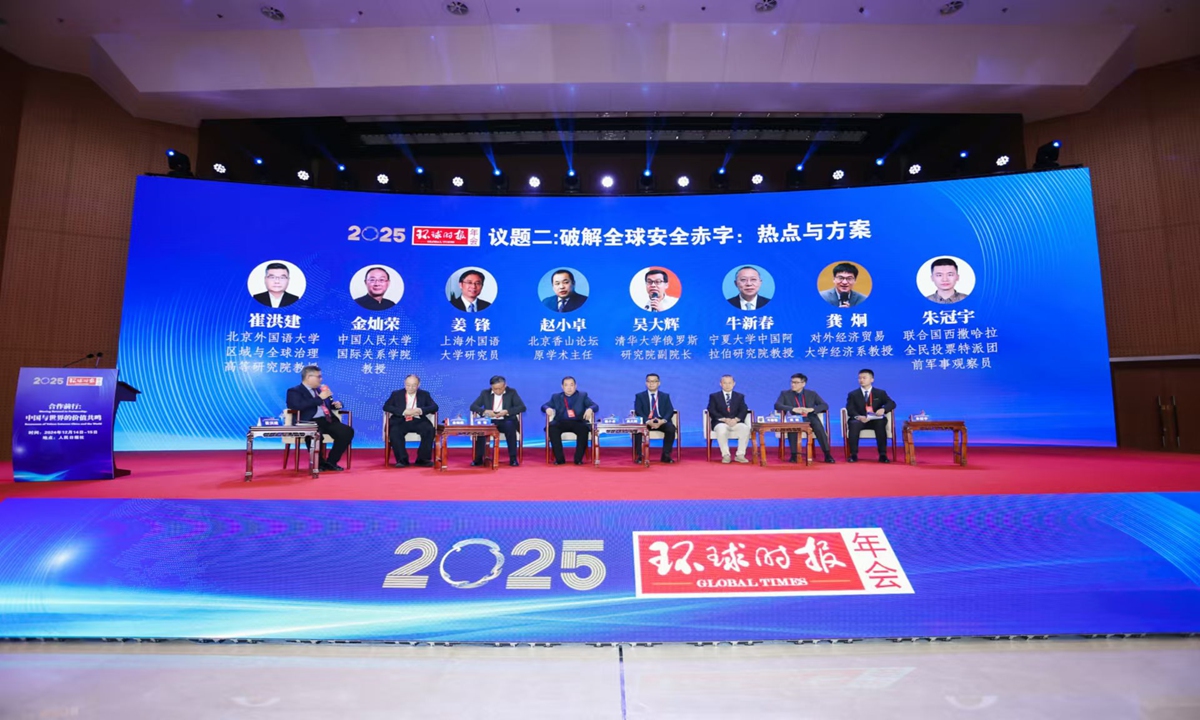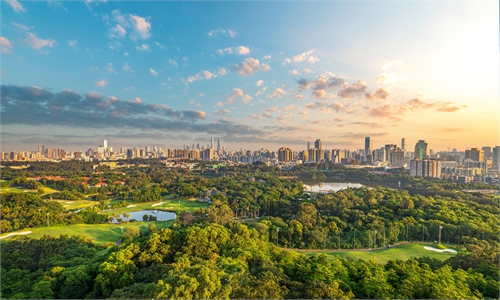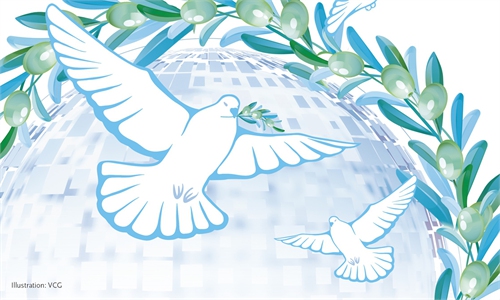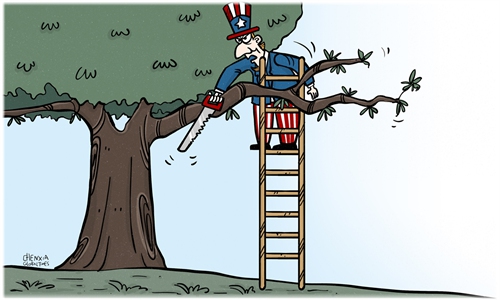
Participants speak at the second session "Addressing the global security deficit: hotspots and solutions" of the Global Times Annual Conference 2025. Photos on this page: GT
Editor's Note:
The Global Times Annual Conference 2025, themed, "Moving forward in Partnership: Resonance of Values between China and the World," was held in Beijing on Saturday. The Global Times invited over 100 prominent figures and experts from politics, academia, and business, both domestically and internationally, to discuss four major topics. They explored, from different perspectives, the practical paths and efforts for China and the world to move forward together and build a community with a shared future for mankind. The op-ed desk will publish relevant content for four consecutive days. Today's publication features the second session of the conference, "Addressing the global security deficit: hotspots and solutions."
The Ukraine crisis continues to drag on, drawing global attention. A new round of Israel-Palestine conflict has erupted, further intensifying the humanitarian crisis. Regional conflicts and localized wars are escalating, while hegemonism and power politics are on the rise. New traditional security risks keep emerging, alongside the persistent spread of non-traditional security threats such as terrorism, climate change, cybersecurity and the refugee crisis. The international security situation is marked by increasing instability and uncertainty. Humanity urgently needs guidance toward a path of lasting peace and common security.
Two conflicts highlight international security challenge
Wu Dahui, a professor of international relations and expert on China-Russia ties at Tsinghua University
There are significant differences between the US and Russia regarding how the Russia-Ukraine conflict would end. Based on the current situation, there is little possibility of a peace treaty being reached between Russia and Ukraine by the first half of 2025, or even by the end of 2025.
Security is the absence of threats objectively and the absence of fear subjectively; and peace is a process of reconciliation achieved through dialogue. Only in this way can there be lasting peace.
China is not a party to the Russia-Ukraine conflict and can only do its best within its capacity. The more difficult the situation, the more needed it is for Global South countries, including China and Brazil, to play a greater role.
Niu Xinchun, executive director of the China-Arab Research Institute of Ningxia University
The Middle East is currently undergoing a transition in power dynamics. This transition is reflected in three key aspects.
First, in the global power landscape, the balance of power between the US and Russia in the Middle East has shifted significantly, as shifts in Syria's political landscape have led to a decline in Russia's influence in the Middle East. Meanwhile, over the past year, the US has continuously increased its military presence in the Middle East, with the close US-Israel military cooperation reaching an unprecedented level.
Second, in the regional landscape, the core conflict remains between Iran and Israel, and their power dynamics have undergone major changes. Iran and Iran-backed resistance forces have experienced a significant erosion of their strength and influence in the region, while Israel's military influence has expanded dramatically.
Third, the internal power dynamics in several Middle Eastern countries have also shifted. In Lebanon, Hezbollah's power has weakened due to changes in Syria's domestic political dynamics, causing an imbalance in Lebanon's internal power structure.
What is the root cause of the global security deficit?
Jiang Feng, research fellow at the Shanghai International Studies University
Concerning the current international situation, today's global security deficit is multifaceted, encompassing not only political and military security issues but also those related to economics, technology, society, climate change, and artificial intelligence. Modern international relations transcend traditional national interests and borders.
For China, as long as it properly manages its relations with the US, the EU and the Global South, it can make a significant contribution to addressing the global security deficit in the future. So, China should strive to "minimize losses" in its relations with the US, "tap into potential" in China-EU relations, and consolidate and expand common interests with other members of the Global South. By doing so, China can strengthen global cooperation, counterbalance hegemonic forces and foster stability.
Zhao Xiaozhuo, former director of the Beijing Xiangshan Forum Secretariat
As for the current state of international security, the world today is vastly different from what it was five or 10 years ago. Currently, some conflicts exhibit more pronounced characteristics of long-term duration and heightened danger. As for the reasons, I believe the most critical one is that major powers have lost strategic mutual trust. When major powers trust each other, the overarching tone of the international community is one of peace and cooperation. The world consists of so many countries, each with different interests, and conflicts inevitably arise at times. However, these conflicts are, for the most part, controllable. Now, the problem is that without strategic mutual trust between major powers, many factors have become uncontrollable. In some places, it's like dry tinder - you cannot know when a single spark could set off a fire.
The better China develops, the more stable the world becomes
Zhu Guanyu, former military observer for the United Nations Mission for the Referendum in Western Sahara
The Western Sahara region has experienced prolonged conflicts, transitioning from intense hostilities at the beginning to overall stability now. The United Nations has made numerous efforts, and China has also contributed its share. Currently, there are over 200 observers from 44 countries in the mission area, including 11 observers from China.
During this process, the Chinese observers have gained respect from both colleagues and local residents through their excellent professionalism and capabilities, confidence and belief in peace, unique approachability, as well as their respect and support for the local people and culture. When military observers leave the mission area, local residents often express sorrow, with some shedding tears when observers depart. Although each military observer's term is only one year, China has consistently maintained a presence of military observers in the region. Although the world is still intertwined with turmoil and chaos, he believes that joint efforts by China and other nations can guide the world toward peace.
Jin Canrong, professor of school of international studies at Renmin University of China
Against the backdrop of ongoing turbulence in international and regional situations, China is where the certainty lies in an uncertain world, serving as the stabilizing force for the globe. The better China develops and the stronger it becomes, the more stable the world will be; China's stability is a contribution to the world.
The key right now is for China to focus on its own affairs, with economic development being the most crucial aspect. We can see that the annual Central Economic Work Conference reviewed the country's economic work in 2024, analyzed the current economic situation and arranged next year's economic work. It introduced a series of new measures to provide momentum for the sustained recovery, improvement and assurance of the economy.



